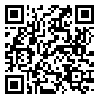Volume 3, Issue 2 (6-2013)
J Research Health 2013, 3(2): 335-344 |
Back to browse issues page
Download citation:
BibTeX | RIS | EndNote | Medlars | ProCite | Reference Manager | RefWorks
Send citation to:



BibTeX | RIS | EndNote | Medlars | ProCite | Reference Manager | RefWorks
Send citation to:
Naderimagham S, Niknami S, Abolhassani F, Hajizadeh E, Montazeri A. Development and psychometric properties of perceived barriers scale (PBS) for self-care in middle-aged patients with diabetes mellitus type 2. J Research Health 2013; 3 (2) :335-344
URL: http://jrh.gmu.ac.ir/article-1-93-en.html
URL: http://jrh.gmu.ac.ir/article-1-93-en.html
Shohreh Naderimagham1 
 , Shamsoddin Niknami
, Shamsoddin Niknami 
 2, Farid Abolhassani3
2, Farid Abolhassani3 
 , Ebrahim Hajizadeh1
, Ebrahim Hajizadeh1 
 , Ali Montazeri4
, Ali Montazeri4 


 , Shamsoddin Niknami
, Shamsoddin Niknami 
 2, Farid Abolhassani3
2, Farid Abolhassani3 
 , Ebrahim Hajizadeh1
, Ebrahim Hajizadeh1 
 , Ali Montazeri4
, Ali Montazeri4 

1- Tarbiat modares university
2- Tarbiat modares university , niknamis@modares.ac.ir
3- Tehran Uuniversity of Medical Sciences
4- Iranian Institute for Health Sciences Research
2- Tarbiat modares university , niknamis@modares.ac.ir
3- Tehran Uuniversity of Medical Sciences
4- Iranian Institute for Health Sciences Research
Abstract: (21454 Views)
Appropriate self-care has an important role in improving the life level of diabetics and it has been proven that perceived barriers is one of the most contributory factors on the success self-carein diabetes. Thus, this study aimed to develop a scale for evaluating perceived barriers for self-care in middle-aged patients with diabetes mellitus type 2. The qualitative part of this mixed study was conducted in order to develop a preliminary item pool. In quantitative part, content and face validity, reliability (internal consistency and test-retest analysis), construct validity and factor analysis (exploratory and confirmatory) were performed for assessing psychometric properties of the scale. The 33-item questionnaire was developed through the qualitative phase. Exploratory factor analysis loaded a 23-item with a seven factor solution that jointly accounted for 64.75% of observed variance. The confirmatory factor analysis indicated a good fit to the data. Cronbach’s alpha coefficient showed excellent internal consistency (α=0.80), and test-retest of the scale with a 2-week interval indicated an appropriate stability for the scale (ICC=0.89). The findings showed that the designed questionnaire was a valid and reliable instrument for measuring perceived barriers for self-care in middle-aged patients with diabetes mellitus type 2. It is a short and easy to use questionnaire and contains the most significant diabetes related self-care behaviors.
Type of Study: Orginal Article |
Received: 2012/05/29 | Accepted: 2013/07/8 | Published: 2013/07/8
Received: 2012/05/29 | Accepted: 2013/07/8 | Published: 2013/07/8
| Rights and permissions | |
 |
This work is licensed under a Creative Commons Attribution-NonCommercial 4.0 International License. |



